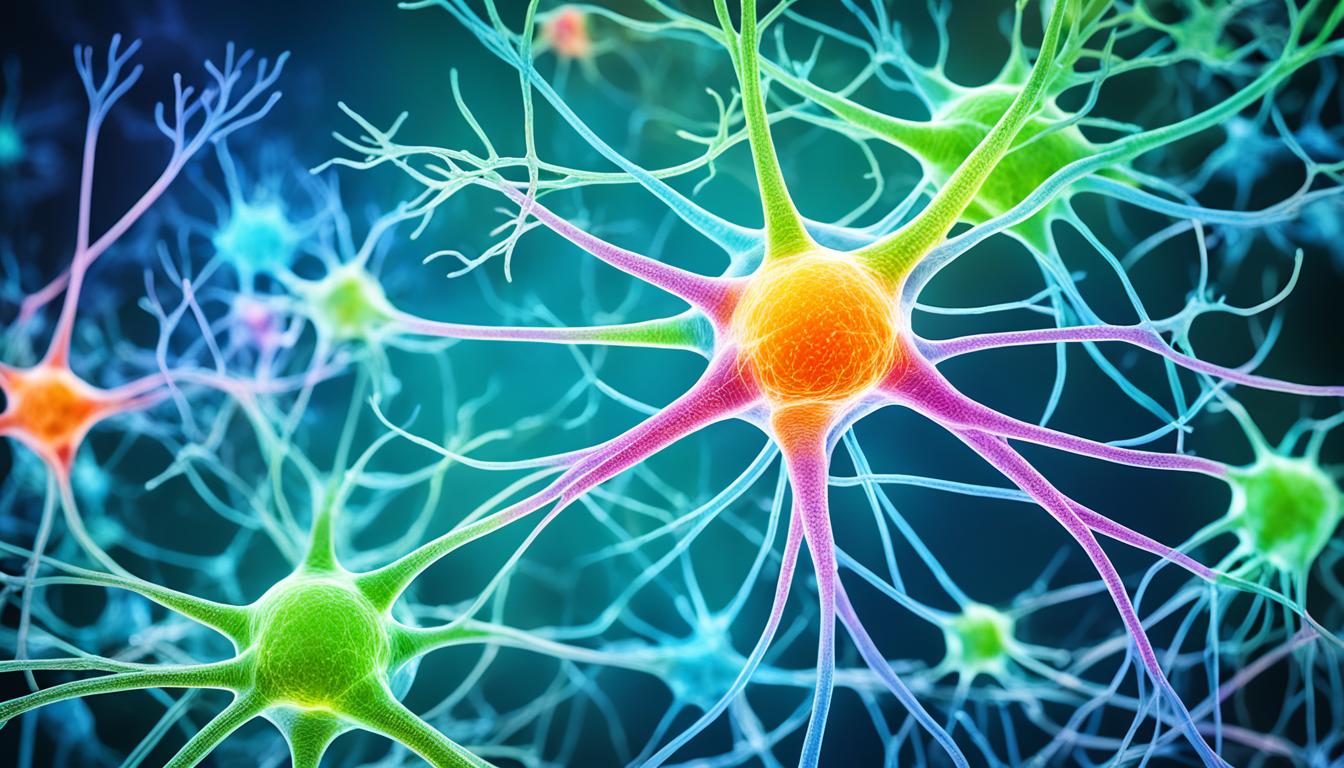Functional neurological symptom disorder (FND) is a movement disorder that affects many people. It leads to issues like weakness, paralysis, and tremors. The cause of FND is not physical damage to the brain, making it different from other brain disorders. It affects various body parts and can cause different symptoms.
Doctors diagnose FND after a thorough evaluation. They look at both medical and mental aspects because there’s no specific test for it. Treatment aims to help people live better by easing symptoms. It can include medicine, talk therapy, exercises, and changes in lifestyle. New methods like stem cell therapy are showing potential in making recovery easier.
Key Takeaways:
- Functional neurological symptom disorder (FND) is a common neurological movement disorder characterized by abnormal brain function.
- Symptoms of FND can include weakness, paralysis, tremors, and speech difficulties.
- Diagnosis of FND requires a thorough evaluation by medical and psychiatric professionals.
- Treatment options for FND focus on managing symptoms and improving quality of life.
- Stem cell therapy is an emerging treatment option that shows promise in improving nerve protection and promoting recovery.
Understanding Functional Neurological Symptom Disorder
Functional neurological symptom disorder (FND), also known as conversion disorder, is a condition with abnormal brain functions causing various symptoms. These symptoms might include sudden weakness, paralysis, tremors, and speech difficulties. They usually get worse when you pay more attention to them, but can get better with distraction.
FND is a real and serious issue. People with FND often feel very upset because of their symptoms. These issues can make daily activities hard. Doctors use different tests to find FND. They rule out other sicknesses first. A full check by a medical team is needed to diagnose FND.
Treatment Options for Functional Neurological Symptom Disorder
The ways to treat FND focus on improving life quality for those affected. They bring together different methods for better care. These treatments include:
Medications
Medicines are key in handling FND’s specific issues like pain or worry. The kind of drug a person uses depends on their health and symptoms. The right medication can reduce discomfort and boost health.
Psychotherapy
Therapy, like CBT, is effective in treating FND. It helps people find ways to deal with stress and identify what causes their symptoms. This makes their mental health stronger and helps them function better.
Physical Therapy and Occupational Therapy
Physical and occupational therapy are vital for those with FND. They aim to increase movement, function, and strength. Professionals in these fields create plans that meet each person’s unique needs.
Lifestyle Changes
Making healthy changes can really help with FND. Working out gently or doing yoga can lower stress. Eating well supports the brain. Stress relief methods like mindfulness are also important.
Stem Cell Therapy
Stem cell treatment shows promise in helping with FND. It can protect nerves, lower inflammation, and speed up recovery. While it’s in its early stages, it might help fix the problem inside the brain. More research is necessary to know how well it works over time.
The fight against functional neurological symptom disorder uses many different treatments. A mix of medicine, therapy, physical help, and changes in how we live can reduce symptoms and improve life. It aims to make everyone feel better and healthier.
Conclusion
Functional neurological symptom disorder (FND), also called conversion disorder, is a common issue. It affects how the brain works and leads to movement problems. Getting the right FND diagnosis is hard because there’s no single test for it. But, a full check-up by experts in medicine, brain health, and mental wellness can confirm the condition.
Treating FND needs a team of experts. This team uses many tools like medicine, talking therapy, exercises, and making changes to how one lives. Medicines can target issues like pain, worry, and feeling down. Talking with a therapist, especially through cognitive-behavioral therapy (CBT), can help handle stress and manage FND symptoms.
Recently, stem cell therapy has shown hope for FND. Stem cells can protect nerves, fight swelling, and boost healing. However, more studies are required to know for sure if stem cell therapy really works for FND. Early signs hint at its potential.
Dealing with FND needs a lot of different approaches. By using many treatments and therapies, including new options like stem cell therapy, people with FND can do better. They can improve and take back their control from this condition.

